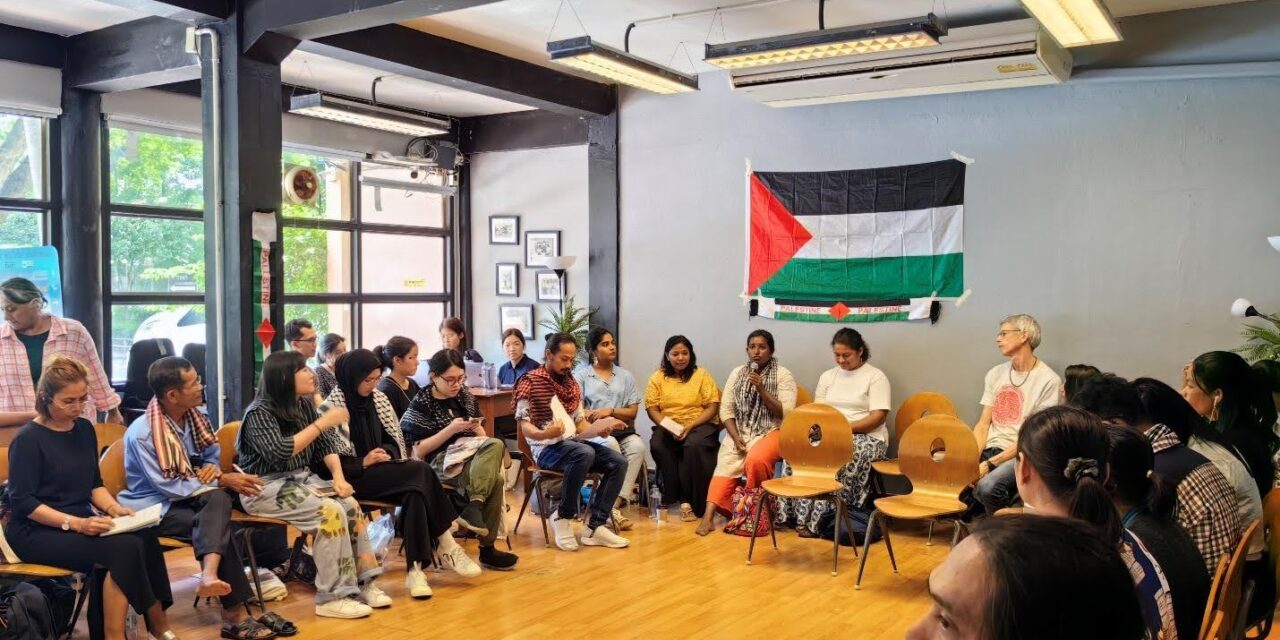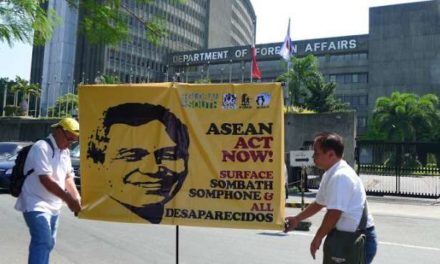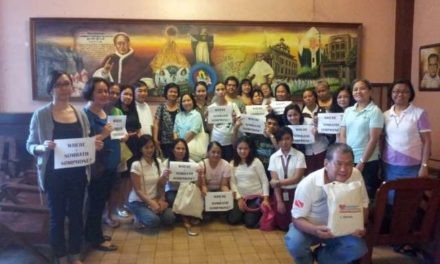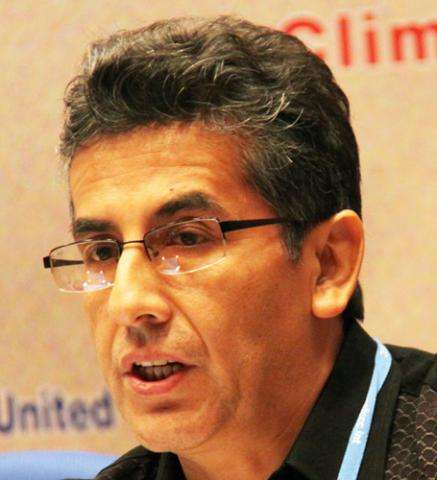2024 September 28
A week before the world marks one year of Israel’s latest genocidal war of aggression against Palestine, diverse peoples and movements from Southeast Asia have gathered for a Palestine Solidarity Event in the 6th edition of the Mekong-ASEAN Environmental Week. Co-organized by Focus on the Global South, International Rivers, and Social Action for Community and Development, the event saw the sharing of perspectives about the cumulative impact of centuries of settler colonialism and contemporary capitalist exploitation in Palestine as well as the current situation in Gaza and the Occupied Palestinian Territories that often are obscured by mainstream media and narratives. Grassroots movement and civil society leaders from various peoples’ struggles across the region also highlighted empowering victories and solidarity actions on the ground for Palestine, and concrete steps they have done to pressure their governments to comply with its legal obligations and to end the madness that is happening in Palestine.
In the opening panel, speakers shared critical contextual updates on Gaza and the Occupied Palestinian Territories, including, among others: the use of starvation as a tool of genocide; the violation of the rights of peasants, fisherfolk, rural women, Bedouin, indigenous peoples, and other small-scale food providers; the pillaging of natural resources, ecocide, plundering of resources offshore and protected coastal zones, and contamination of land and destruction of water and energy systems both in Gaza and West Bank, the continuing arms trade and how Israel tests technologies of oppression against Palestinian people and exports it to the Global South, as well as the complicity of both national and transnational corporations in Israel’s system of occupation and apartheid.
The speakers emphasized that October 7 did not happen in a vacuum: the land of Palestine and the people of Palestine had been subjected to a brutal, inhumane, and dehumanizing occupation for more than 50 years. They explicitly characterized what is happening in Palestine as genocide and a crime against humanity, amidst the complete breakdown of international law and the ongoing tarnishing, cutting of aid, and attacks on agencies such as the United Nations Relief and Works Agency for Palestine Refugees in the Near East (UNRWA)—with Israel continuing to move forward with complete immunity and impunity knowing that it is supported by complicit states and powerful corporations.
UN Special Rapporteur on the Right to Food Michael Fakhri, in a video message pointed out how Israel is able to starve so many Palestinian peoples so quickly and so completely as it destroys food systems in Gaza—how it has done this for decades by imposing a blockade and policy of hunger against Palestinians—while expanding its settler occupation into the West Bank at record rates to annex the remaining Palestinian territories. He underscored the necessity of imposing economic, political, cultural sanctions to significantly isolate Israel and for people all over the world to continually demand their governments to do so. On September 18, UN Independent Experts released a statement warning that “the edifice of international law stands upon a knife’s edge”—while also outlining key demands for states to comply with the International Court of Justice (ICJ) ruling as well as their legal obligations.
The importance of strengthening Global South solidarity, organizing collective spaces for learning the historical roots of peoples’ struggles, and analyzing the intersectionality of these struggles were highlighted by the sharing of insights from various movement leaders. In the second panel, representatives from peoples’ movements in Cambodia (a country that was marked by a dark history of genocide under the regime of Khmer Rouge), India, Philippines, Thailand, Sri Lanka, the broader Asia region, and internationally talked about what concrete “solidarity from below” means. Empowering communities in challenging the models of exploitation that are being imposed across the Global South, pushing states to impose a comprehensive and mandatory military embargo and transfer of weapons (including concessions to oil and gas companies), calling for legislation that prevents businesses from entering into or continuing agreements with Israeli companies profiting off apartheid, were among the initiatives that were shared.
Almost a year into the latest war of aggression against Palestine by Israel, it is imperative that peoples all over the world do not stop talking about Palestine—that we all keep talking about every act of oppression, genocide, and deprivation—because silence would be tantamount to complicity. Collective actions and collaborative campaigns to amplify solidarity for Palestine must also be sustained. These include the petition led by grassroots movements and civil society organizations across Asia, Africa, and Latin America, From Bandung to Gaza: Towards a Global South unified against Israel’s regime of genocide and apartheid.
At the conclusion of the Palestine Solidarity Event, a resounding demand for justice, “from the Mekong River to the Southeast Asian Sea, all of us shall be free!” emerged. Similarly, a reverberating message was that of a call to action—and while the ongoing genocidal war in Palestine has galvanized regional and global solidarity movements—it is imperative to concretize this solidarity into real and meaningful actions for Palestine, contributing to the well-being and aspirations of the Palestinian peoples, as well as the broader struggles for self-determination, justice, and peace.










